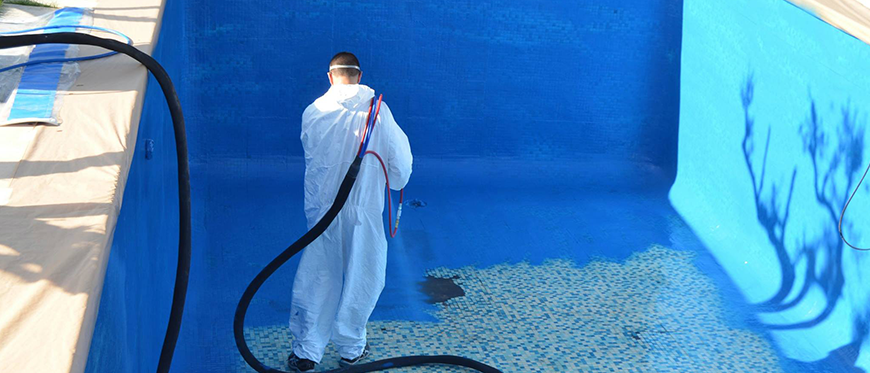Polyurea coatings have emerged as one of the most innovative and versatile coating solutions available today. With advanced properties like durability, flexibility, and corrosion resistance, polyurea coatings are increasingly being used across various industries for protective coating applications. Let's take a deeper look at this cutting-edge coating technology.
What are Polyurea Coatings?
Polyurea coatings are pure polyurea or hybrid formulations consisting of amine-terminated polyurethane prepolymers and amine hardeners. They are applied through plural-component spray equipment that rapidly mixes and sprays the two components in a one-to-one or two-to-one ratio. Once these components react using fast-moisture-activated catalysts, it forms an elastomeric coating with excellent mechanical and physical properties. Some key advantages of polyurea coatings are:
- Flexibility: Polyurea coatings remain flexible between -50°F to 250°F temperature ranges, providing protection against cracking or damage from expansion/contraction.
- Durability: They have high tensile, abrasion and impact strengths making them extremely durable and resistant to damage from weathering, UV rays, chemicals, abrasions and punctures.
- Fast curing: Polyurea cures very quickly at room temperature through chemical crosslinking. Spray applications can cover large surface areas rapidly.
- Low permeability: The molecular structure of polyurea makes the coatings highly impermeable to water, oxygen, compounds and corrosion causing agents.
- Excellent adhesion: Properly applied polyurea bonds strongly to various substrates like concrete, wood, metal etc.
Applications of Polyurea Coatings
Due to their outstanding protective properties, polyurea coatings have found widespread use across many industries for corrosion protection, structural reinforcement and waterproofing applications:
Infrastructure Protection
- Concrete structures: Bridges, tunnels, parking structures etc. to prevent corrosion of rebar. Spray-applied polyurea forms an impenetrable barrier.
- Waterproofing: Roofing, foundations, tanks, secondary containments etc. Polyurea forms seamless membranes preventing water ingress.
Industrial Use
- Water/waste water facilities: Digesters, lagoons, pipes etc. Highly chemical resistant polyurea protects surfaces.
- Mining: Haul trucks, shovels, conveyors etc. Tolerate harsh environments and impacts.
- Power: Wind turbine blades, power line structures etc. Maintain performance in all weather conditions.
Transportation
- Truckbeds: Provides abrasion resistance and protects payloads from moisture.
- Railcars: Durable coatings prevent corrosion undercarriage.
Military and Safety Equipment
- Body armor: Lightweight ballistic polyurea composites provide protection.
- Vehicle/vessel armor: Protects against explosions and projectiles.
Advantages over Epoxy and Other Coatings
While epoxy coatings are popular protective coatings, Polyurea Coating offers some distinct advantages:
- Cures faster than epoxy without requiring heat. Reduces downtime and installation costs.
- Superior flexibility and impact/abrasion resistance compared to rigid epoxy. Absorbs stresses and damage.
- More resistant to chemicals, moisture and UV degradation than conventional paints or epoxy. Longer lifespan.
- Can be applied at lower/variable temperatures. Easier application in all weather conditions.
- Forms seamless, monolithic membranes without laps or seams like sheet materials.
As a relatively new technology, researchers are continuously working on expanding polyurea formulations and applications. New hybrid systems combining polyurea with other polymers are opening up more opportunities. With innovative properties and performance advantages, polyurea coatings promise to transform protective coatings solutions over the coming decades.
Get more insights, On Polyurea Coatings

